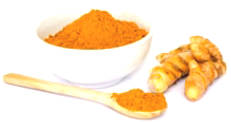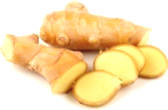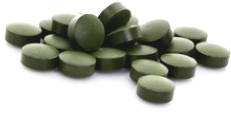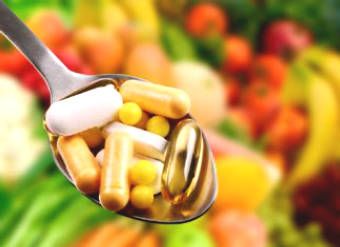
Inflammation occurs in response to injury, illness and stress.
However, inflammation may also be due to unhealthy food and lifestyle habits.
Anti-inflammatory foods, exercise, good sleep and stress control can help reduce inflammation.
In some cases, support from functional foods can also be very helpful.
Here are 6 scientifically proven supplements that reduce inflammation.
1. Alpha-Lipoic Acid
is a body fatty acid that can synthesize itself. This substance plays an important role in metabolism and energy production.
It also acts as an antioxidant, protects cells from injury and helps restore antioxidant levels such as vitamins C and E .
Alpha-lipoic acid also reduces inflammation. Some studies show that this acid helps reduce inflammation associated with insulin resistance, cancer, liver disease, heart disease and other disorders .
In addition, alpha-lipoic acid may help reduce blood levels of some inflammatory signs, including and .
In many studies in patients with heart disease, alpha-lipoic acid also aids in reducing inflammatory signs .
However, some studies have found no signs of inflammatory changes in alfa-lipoic acid users compared to control groups .
Recommended dosage: 300-600 mg daily. No problems were found in people taking 600 mg of alpha-lipoic acid for 7 months .
Possible side effects: There will be no side effects if taken according to the recommended dosage. If you are taking diabetes medication, monitor your blood sugar carefully.
Contraindications: pregnant women.
Conclude: Alpha-lipoic acid is an antioxidant that can reduce inflammation and improve the symptoms of some diseases.
2. Curcumin

Curcumin is a substance found in turmeric. It brings some impressive health benefits.
Curcumin helps reduce inflammation in some diseases such as diabetes, cardiovascular disease, inflammatory bowel disease and cancer .
Curcumin seems to be very good for reducing inflammation and improving symptoms and .
A randomized controlled trial showed, compared with those taking placebo, the degree of inflammation and of those who suffer significantly decreased when taking curcumin .
In another study, 80 people with solid tumors were given 150 mg of curcumin, most of their inflammatory signs were reduced more than those in the control group. Their quality of life scores also increased significantly .
Curcumin is poorly absorbed when used separately, but you can increase its absorption by up to 2,000% by combining it with in black pepper .
Some other functional foods contain a compound called bioperine, which also acts like piperine and increases absorption.
Recommended dosage: 100-500 mg daily with piperine. Doses of up to 10 grams per day have been shown to be safe, although may cause gastrointestinal side effects .
Side effects may occur: There will be no side effects if taken according to the recommended dose.
Contraindications: pregnant women.
Conclude: Curcumin is a powerful anti-inflammatory food that helps reduce inflammation in many diseases.
3. Fish oil

Functional foods from fish oil contain omega-3 fatty acids, which play an essential role in health.
These fatty acids can reduce inflammation caused by diabetes, heart disease, cancer and other conditions .
There are 2 particularly good types of omega-3: eicosapentaenoic acid (EPA) and docosahexaenoic acid (DHA).
DHA has been shown to have anti-inflammatory effects by reducing levels and enhance intestinal health. DHA can also reduce inflammation and muscle damage that occurs after exercise .
In one study, the level of inflammation of IL-6 was reduced by 32% in those taking 2 grams of DHA, compared to the control group .
In another study, DHA supplements significantly reduced levels of inflammatory signs TNF alpha and IL-6 after intense exercise .
However, some other studies on healthy people and people with atrial fibrillation do not show any benefit from fish oil supplementation .
Recommended dose: 1-1.5 grams omega-3 from EPA and DHA every day. Use fish oil supplements that do not contain mercury.
Possible side effects: At higher doses, fish oil can dilute blood, thereby causing blood to clot.
Contraindications: Not for people who use anticoagulants or aspirin, unless indicated by a doctor.
Conclude: The functional foods from fish oil contain omega-3 fatty acids to help improve inflammation in some diseases.
4. Ginger

Ginger is also commonly used to treat indigestion and nausea and also morning sickness.
There is ginger in there and Can reduce inflammation in colitis, kidney damage, diabetes and breast cancer .
People with diabetes taking 1,600 milligrams of ginger a day had significantly reduced levels of CRP, insulin and HbA1c compared to the control group .
Another study found that women with breast cancer taking ginger supplements had lower levels of CRP and IL-6 when taking dietary supplements, especially when combined with exercise .
There is also evidence that ginger supplements can reduce muscle inflammation and pain after exercise .
Recommended dose: 1 gram per day, but using up to 2 grams is still considered safe .
Possible side effects: There are no side effects if taken according to the recommended dose. However, higher doses can dilute blood, which can make it harder for blood to clot.
Contraindications: People who take aspirin or anticoagulants, unless directed by a doctor.
Conclude: Ginger supplements have been shown to help reduce inflammation and pain after exercise.
5. Resveratrol
is an antioxidant in grapes, blueberry and the fruits have purple pods. It is also found in red wine and peanuts.

Resveratrol functional foods can reduce inflammation in people with heart disease, insulin resistance, gastritis, ulcerative colitis and other diseases .
One study gave people with ulcerative colitis daily use 500 mg of resveratrol. As a result, disease symptoms have improved and signs of CRP, TNF and also relieved .
In another study, resveratrol supplements reduced the signs of inflammation, triglyceride and blood sugar in obese people .
However, another test showed that resveratrol did not improve the inflammatory signs of overweight people .
Red wine resveratrol is also good for health, but this amount in red wine is not as high as we thought .
Red wine contains less than 13 mg of resveratrol / liter (34 oz), but most studies of resveratrol's health benefits have given participants 150 mg of resveratrol or more daily.
To provide an equal amount of 150 mg, you need to drink at least 11 liters (3 gallons) of alcohol every day, which is definitely not good for health.
Recommended dose: 150-500 mg daily .
Possible side effects: There will be no side effects when taken at the recommended dose, but taking a large amount (5 grams per day) can cause digestive problems.
Contraindications: People who take anticoagulants, unless directed by a doctor.
Conclude: Resveratrol can reduce some signs of inflammation and bring other health benefits.
6. Spirulina

Spirulina is a green algae that has a strong antioxidant effect.
Studies have shown that spirulina alleviates inflammation, creates a healthier aging process and can enhance the immune system .
Although most studies of spirulina's effects to date have been animal studies, studies in men and elderly women have shown that it can improve inflammation and condition. and immune function .
People with diabetes take 8 grams of spirulina daily for 12 weeks, their levels of meningitis have decreased .
In addition, concentration (A hormone involved in regulating blood sugar and fat metabolism) is also increased.
Recommended dose: Based on current studies are 1-8 grams per day. Spirulina has been rated safe .
Possible side effects: In addition to allergies, there are no side effects if used according to the recommended dosage.
Contraindications: People with immune system disorders or allergies to spirulina or algae.
Conclude: Spirulina provides protection from antioxidants, which can reduce inflammation and improve symptoms of some diseases.
Be wise when choosing functional foods
If you want to try any kind of dietary supplement, it is important to:
- Buy them from reputable manufacturers.
- Follow the user guide.
- Ask your doctor first if you have a disease or are taking medicine.
In general, the best way is to provide anti-inflammatory substances from fresh food sources.
However, in the case of severe or chronic inflammation, functional foods can often help bring the situation back to equilibrium.
